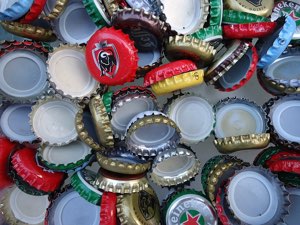
How strongly the brain’s reward system responds to alcohol is not the same for everyone. Those whose brain chemistry reacts particularly strongly to beer and wine have a particularly high risk of sticking to alcohol. This is what researchers at the University of Chicago have found out. They observed 190 study participants over 10 years. The result was clear: those who reacted particularly positively and strongly to alcohol at the beginning of the study later developed a dependency.
“This explains why some people are more prone to developing alcohol dependence, while others remain social drinkers,” says study leader Dr Andrea King. “This could be an opportunity for early intervention,” hopes the professor of psychiatry. She compares it to a cholesterol check as a risk factor for cardiovascular disease. If one can find out what one’s risk of addiction is by means of special tests, one can change one’s alcohol consumption on one’s own initiative or seek help earlier to avoid progression to addiction.
The study brought another astonishing result to light: it is commonly said that alcoholics have to drink more and more in order to still feel an effect. But this does not apply to the euphoric effect. “Sufferers get the desired alcohol effect early in the drinking binge and that seems to promote the desire for more alcohol,” King reports. “These pleasant alcohol effects actually increase in intensity over time and do not disappear in people who drink excessively.”
“Our results support a theory called incentive sensitisation,” King said. “In response to a standard intoxicating dose of alcohol in the lab, those study participants who later developed alcohol dependence asked for more.” Moreover, the study participants described the alcohol effect as very positive. Contrary to the common theory of addiction, that after a certain point the addict actually rejects the addictive substance, he just cannot stop consuming it.
In short: the alcohol addict’s reward centre loves intoxication until the end – which makes quitting all the more difficult.
Primary source: University of Chicago Medical Center, Increase in pleasurable effects of alcohol over time can predict alcohol use disorde
Secondary source (german)
Image by blommeke / Pixabay